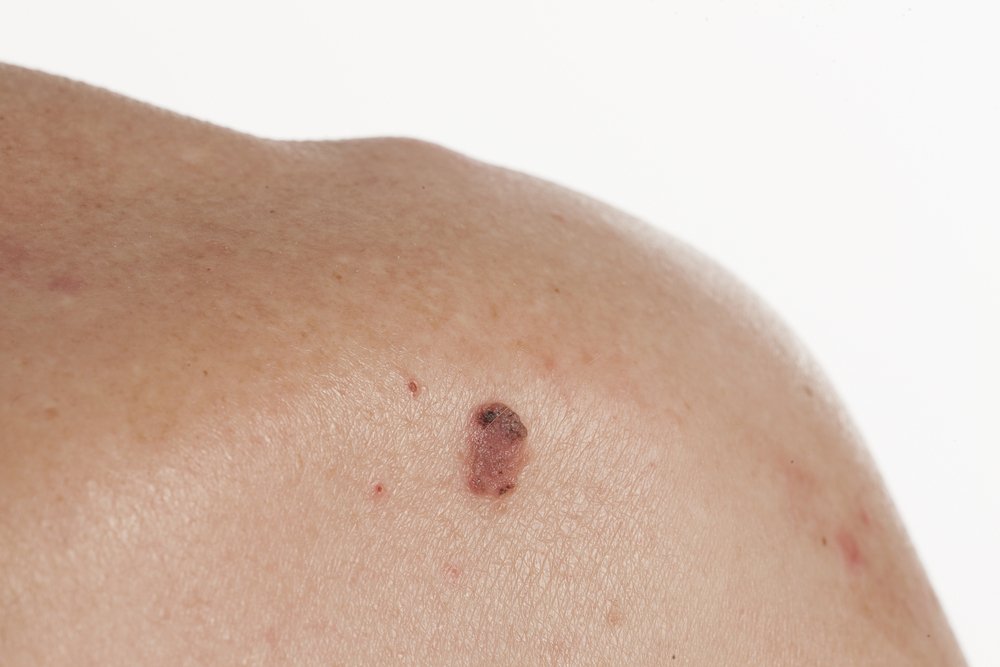
Squamous skin cells comprise a large portion of our skin’s upper and middle layers. When the normal, healthy function of these skin cells is damaged by UV radiation and other risk factors, DNA mutations and uncontrolled cell replication results in the development of squamous cell carcinoma. As the second most common type of skin cancer, squamous cell carcinoma accounts for ~20% of all skin cancer cases.
Fortunately, since most squamous cell carcinoma cases involve the superficial portions of the skin, most cases are identified and treated before cancer spreads. Even though most cases are not life-threatening, squamous cell carcinoma is still a serious skin disease that should be treated immediately.
Common Causes & Risk Factors Of Squamous Cell Carcinoma:
- Prolonged Sun Exposure & Tanning Bed Use
- Lighter Skin Tones Prone To Sunburning
- Immune Disorders & Inflammatory Conditions
- Family History, Older Age, & Previous Skin Cancer Diagnosis
- Smoking & Arsenic Exposure
- Other Diseases That Affect The Skin
Skin-Cancer Prevention Strategies
No one is immune to squamous cell carcinoma, and the most common culprit is sun damage. It’s easy to wear sunscreen, and sun-safe clothing, and protect any burned skin from further sun exposure. If it’s too late and you already have a burn, apply aftersun products like aloe vera and relieve the skin with cool water to promote your skin’s natural healing processes. Paired with healthier lifestyle habits like quality nutrition, and better sleep, and by eliminating factors like smoking or tanning from your routine, you stack the odds of skin safety in your favor.
If you have other unavoidable risk factors, like a lighter skin tone or a family history of skin cancer, you need to take extra skin-safe precautions. If you have health issues like an immune disorder or HPV, our dermatologist for skin cancer in Bucks County will help you design a proactive plan of action to reduce your long-term risks.
Squamous Cell Carcinoma Treatment Options
If you notice any new spots that are raised, rough, colored, or abnormal in any way, it’s never a bad idea to seek a dermatology evaluation. If we do identify a cancerous legion, there are a variety of safe and effective solutions we offer to remedy the situation. Depending on the severity and location, we’ll connect you with a personalized plan of care and strive to achieve 100% cancer-free results. To achieve the best results, our dermatologists provide:
- Surgical Excision: The most effective treatment method is complete removal. We provide both traditional excision procedures as well as Mohs microsurgery when preserving the surrounding healthy tissue is the priority. Our microscopic margin of error control ensures that every cancerous cell has been identified and strategically removed.
- Radiotherapy/Combination Therapy: For advanced squamous cell cancer cases that have spread to the surrounding tissues, approved cancer medications that demonstrate a higher success rate may be the best option to treat your specific case.
Contact our experts at Pennsylvania Dermatology Specialists to learn more, and receive the quality care you deserve the moment you notice any issues with your skin.








No comment yet, add your voice below!